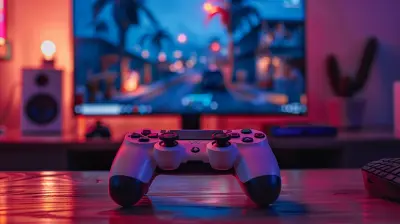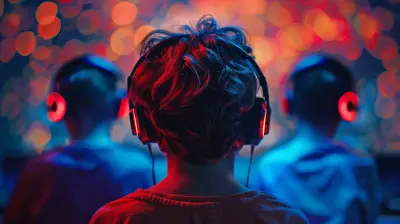The Importance of Communication in Team-Based Esports
17 July 2025
Let’s be real — if you’ve ever played a team-based game, you already know the deal. You can have the sharpest aim, the godliest reflexes, and the most cracked mechanics in the lobby… but if your team doesn’t talk to each other? You're probably going down faster than a bronze player in their first ranked match.
Communication in team-based esports isn’t just "important" — it’s the glue that holds the entire squad together. It’s the difference between a coordinated push that wins the game and a scattered mess that ends in GG in chat.
So, why exactly is communication such a big deal in esports? Let’s talk about it.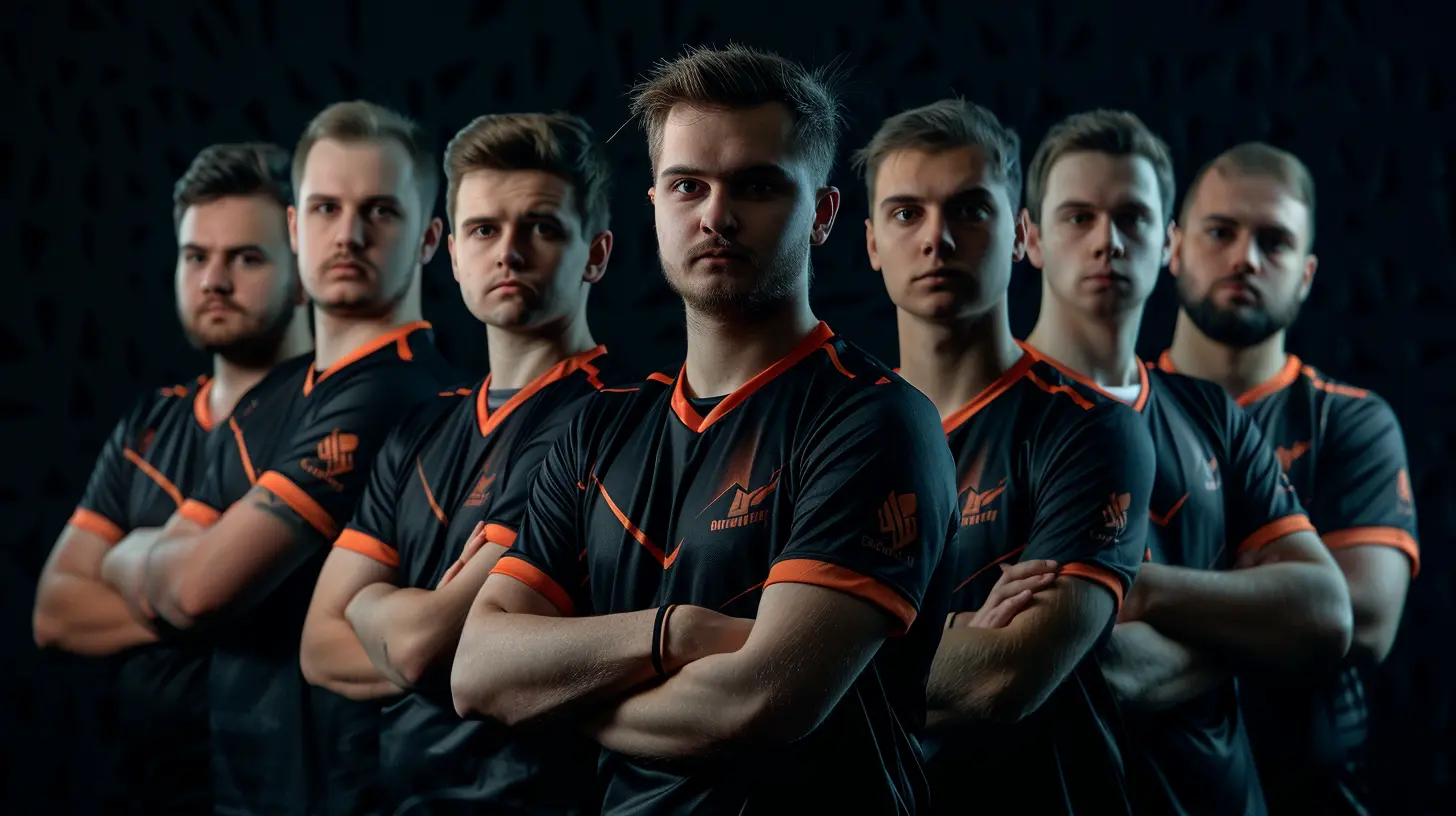
Why Communication Matters More Than Raw Skill
Sure, individual skill matters. You won’t get far without being competent at your role. But let’s face it — esports is called TEAM-based for a reason.Imagine you're in a game of CS:GO. You’re holding the site, smoke’s up, tension's high. You hear footsteps. What do you do? If you're playing solo, you might panic and peek. But if you've got a mic and solid comms, you can calmly call out: “A Long push, three guys, got utility.” Suddenly, your team rotates, flashes go out, and you hold the site like a pro squad.
That’s the power of good communication. It synchronizes your actions. It makes five players feel like one unit. And that wins games.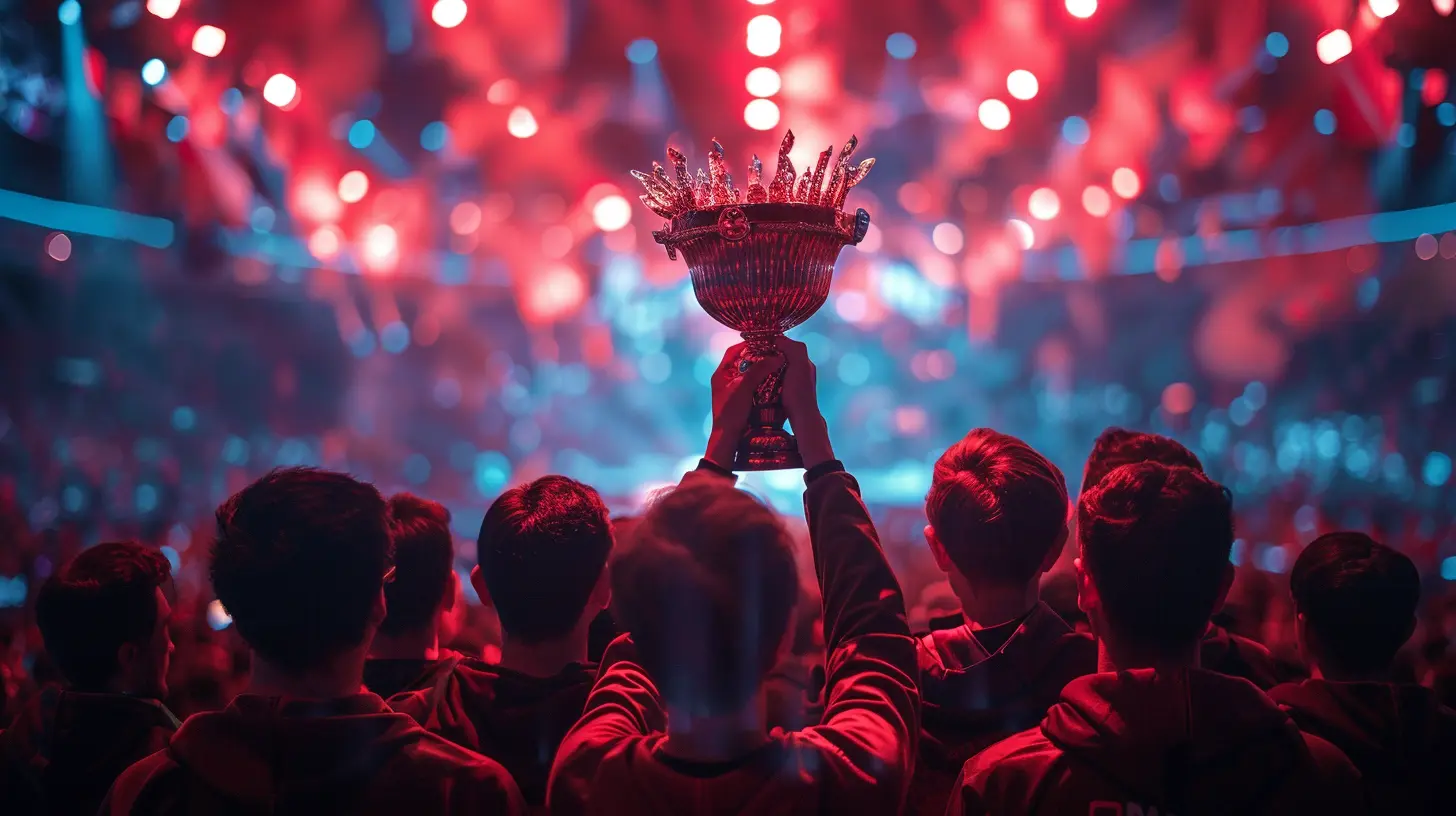
Good Comms = Better Strategy Execution
Let’s nerd out for a second.Every team-based esport — whether it’s Valorant, Overwatch, League of Legends, or Rainbow Six Siege — relies on strategy. You're not just clicking heads or casting spells. You're setting up plays, reacting to enemy moves, and adapting on the fly.
But guess what? None of that works unless your team is talking.
- Setting up a gank in LoL? You need to ping and type or call out lane and jungle positions.
- Planning an execute in Valorant? You need to call out who's flashing where, timing the entry, and clearing angles together.
- Holding a point in Overwatch? You need to talk about ult economy, target priority, and timing pushes.
Without communication, your “strategy” is just five people doing their own thing. Trust me, that ends badly 99% of the time.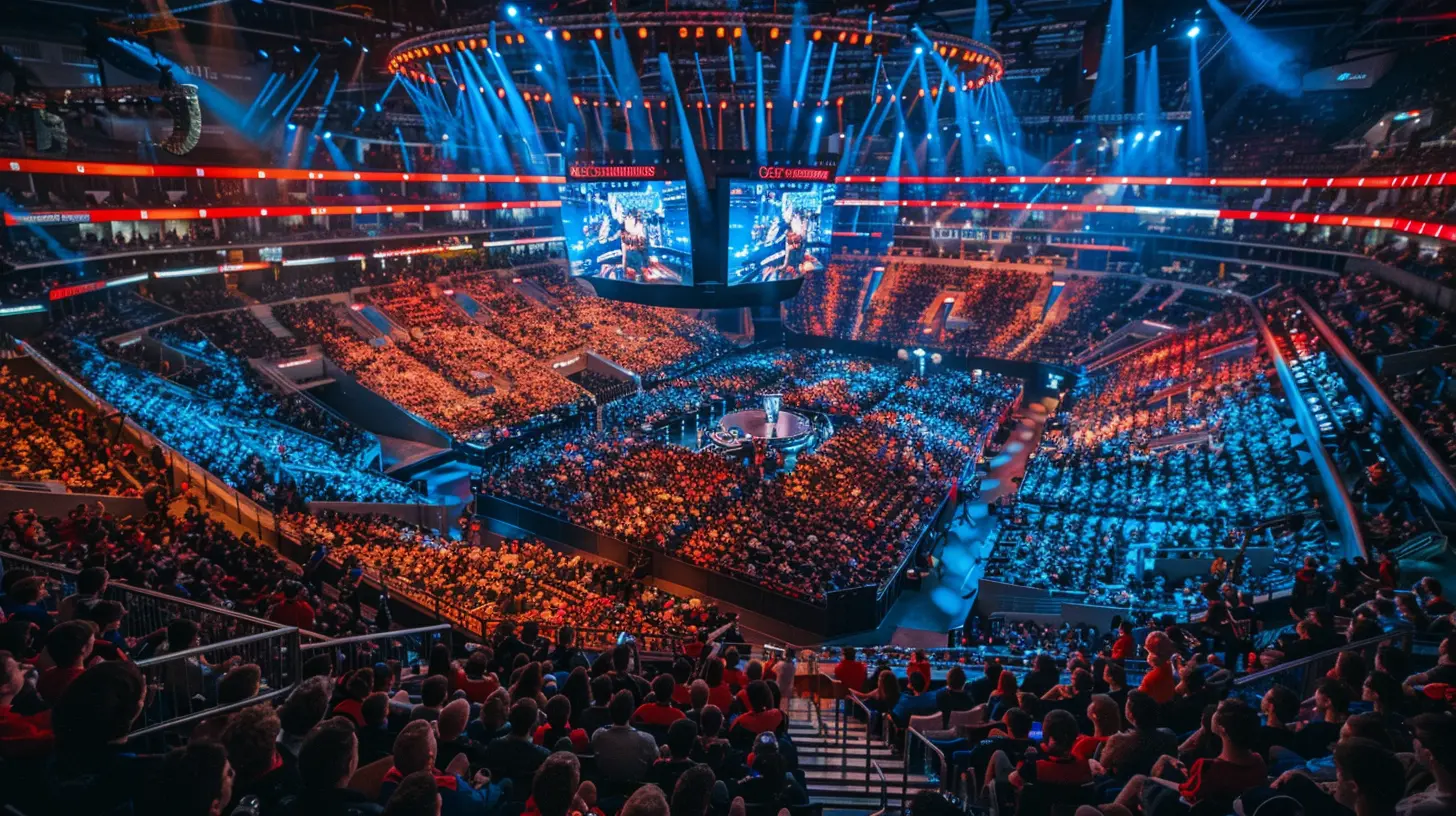
The Mental Game: How Communication Keeps Morale High
Games aren’t just about mechanics and math. Esports, like any competition, weighs heavily on the mind.When a team is losing or on the back foot, guess what keeps them together? Not some inspirational speech or anime power-up — it’s communication.
- Positive reinforcement. “Nice shot!” or “Good hold!” can lift spirits mid-game.
- Constructive feedback. Instead of “Why’d you peek that?!", say “Next time, maybe wait for the team?”
- Resetting tilt. A reminder to breathe, slow down, and focus can do wonders.
When a team talks to each other, supports one another, and keeps the vibes up — that’s when the real magic happens. Comms don’t just coordinate movement; they build trust and resilience.
Voice Comms vs. Text: Why Talking Is Superior
Let’s settle this debate real quick.Some players swear by pings and quick texts. And yeah, they’re useful in a pinch. But nothing beats the speed and clarity of voice comms.
Imagine you're in a nail-biter Apex Legends match. You see someone sneaking behind your teammate's cover. You can either:
- Type: “Behind you dude!!”
- Ping and hope they notice.
- Or... say, “Behind cover — enemy NOW!”
Guess which one saves lives?
Voice chat is faster, clearer, and way harder to misinterpret. It lets you give detailed info instantly and adapt as the situation changes. In a fast-paced environment, that extra second can be the difference between clutching a round or getting wiped.
Roles in Comms: Everyone Has a Voice
Good communication isn’t just about more talking — it’s about smart talking.Each player on a team plays a different role, and that includes what they say and when. Here’s a breakdown:
1. In-Game Leader (IGL) / Shot Caller
This person sets the tempo, makes strategic calls, and directs major decisions. Think of them as the coach on the field.> “We’re pushing B at 1:20. Save ults for post-plant. Let’s go quiet now.”
2. Support / Utility Player
Usually in charge of enabling plays and keeping track of resources. They provide critical info.> “I’ve got flash and smoke. I’ll set up your entry.”
3. Entry / Fragger
Focus on fast info. They’re on the front lines but need to communicate what they see.> “One close left. I’m swinging. Trade me if I go down.”
4. Anchor / Defender
Holds down spots and provides defensive intel.> “Rotating now — they faked A. Bomb’s B. I’m holding cross.”
Everyone should be talking, but they should be saying the right things at the right time. That’s what separates pro teams from pug lobbies.
The Danger of Over-Communicating
Now, let’s talk about the flip side: too much talking.There’s this idea that more talking = better teamwork. But spammy, chaotic comms can do more harm than good.
Have you ever been in a Valorant match where everyone’s yelling at once?
> “LEFT!”
> “I SAID HE’S BEHIND YOU!”
> “BROOOO! WHY YOU PEEK?!”
That’s not communication — that’s noise.
Good comms are clear, concise, and calm. You call what’s needed, not everything you see. Think of your mic like a precision tool, not a megaphone.
How Pro Teams Master Communication
Watch any pro team like Team Liquid, Fnatic, FaZe, or T1 — their comms are next level. It’s like watching dancers in perfect sync.They practice comms just like they practice gameplay. They review VODs, analyze unclear callouts, and even run communication drills.
Some teams do “comms-only” scrims where they focus purely on callouts. Others rotate IGL roles in practice to build leadership flexibility.
Here are a few pro-level habits worth stealing:
- Use code words or phrases for regular plays.
- Always confirm callouts — “Got it,” or “Copy.”
- Keep debriefing after matches — what worked, what didn’t, how comms felt.
Mastering communication is a skill. And like any skill, it needs reps.
How to Improve Your Own In-Game Comms
Alright, so you're not going pro (yet), but you still want to level up. What can you start doing today?🎧 1. Use a Mic — Always
Just having a voice in your team’s ears makes a huge difference. Even if you just call key info, you’re doing your part.🧠 2. Keep it Calm and Clear
No screaming, no panicking. Short, helpful info wins:✅ “One mid, tagged 60.”
❌ “MID MID MID OMG HE’S GONNA KILL ME BROOOO HELP!”
🏹 3. Callouts, Not Criticism
Nobody likes being blamed mid-game. Focus on solutions, not mistakes.🧭 4. Track Team Utility and Info
Act like the team’s navigator. Mention smoke timers, ults, and enemy positions.🧩 5. Decompress and Reflect
After matches, take a minute to think: “Were we communicating well? Could I have been clearer?”These small tweaks can have a HUGE impact on your win rate and your overall experience.
Communication Off the Game: It Starts with Team Culture
Let’s zoom out a bit.Communication in team-based esports doesn’t just happen during the match. It starts with how the team treats each other outside the game too.
If you're in a serious team or climbing the ranks with a squad, invest time off the clock:
- ✅ Run scrims and review callouts together.
- ✅ Talk openly about what kind of comms work for each player.
- ✅ Build trust so people actually listen when it matters.
If everyone feels heard and respected, they’ll be way more likely to step up vocally in-game. Strong comms start with a strong foundation.
Final Thoughts: Talk It Out, Win It Out
At the heart of every clutch play, clean execute, teamfight win, or miracle comeback — there’s communication. Not just shouting directions or barking orders, but real, connected, teamwork-driving comms.Playing with a team is a lot like jazz. You’ve got to know when to speak, when to listen, and how to flow together. That’s how good teams turn into great ones. That’s how players turn into pros.
So next time you load up, whether you're queuing with friends or grinding solo, ask yourself: Am I doing my part with comms? Am I helping my team gel?
Because in team-based esports, it’s not just your aim that wins games — it’s your voice.
all images in this post were generated using AI tools
Category:
Competitive GamingAuthor:

Leif Coleman
Discussion
rate this article
2 comments
Kendra Brooks
Great article! Communication is indeed the backbone of success in team-based esports. Clear strategies and real-time coordination can significantly enhance gameplay, fostering teamwork and maximizing each player's strengths. Effective communication truly sets winning teams apart.
December 11, 2025 at 6:01 PM

Leif Coleman
Thank you! I'm glad you enjoyed the article. I completely agree—communication is key to unlocking a team's full potential in esports!
Dash Perez
Great insights! Effective communication is crucial for teamwork in esports, impacting strategy, synergy, and overall performance. Collaboration is key!
July 22, 2025 at 2:49 PM

Leif Coleman
Thank you! I'm glad you found the insights valuable. Effective communication truly is the backbone of successful teamwork in esports.
